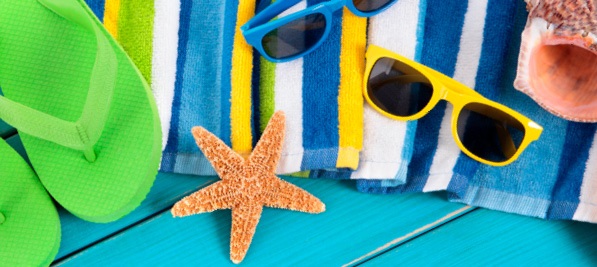Tips for Preventing Heat-Related Illness
July 4, 2020

Stay Cool
- Wear Appropriate Clothing: Choose lightweight, light-colored, loose-fitting clothing.
- Stay Cool Indoors: Stay in an air-conditioned place as much as possible. Even a few hours spent in air conditioning can help your body stay cooler when you go back into the heat.
- Taking a cool shower or bath or moving to an air-conditioned place is a much better way to cool off.
- Schedule outdoor activities carefully: Try to limit your outdoor activity to when it’s coolest, like morning and evening hours. Rest often in shady areas so that your body has a chance to recover.
- Pace yourself: Cut down on exercise during the heat. If you’re not accustomed to working or exercising in a hot environment, start slowly and pick up the pace gradually. If exertion in the heat makes your heart pound and leaves you gasping for breath, immediately stop the activity and find a cool area or shade, and rest, especially if you become light-headed, confused, weak, or faint.
- Wear sunscreen: Sunburn affects your body’s ability to cool down and can make you dehydrated. If you must go outdoors, protect yourself from the sun by wearing a wide-brimmed hat, sunglasses, and by putting on sunscreen of SPF 15 or higher 30 minutes prior to going out. Continue to reapply it according to the package directions.
Stay Hydrated
- Drink plenty of fluids: Drink more fluids, regardless of how active you are. Don’t wait until you’re thirsty to drink. However, if your physician limits the amount you drink or has you on water pills, ask how much you should drink while the weather is hot.
- Stay away from very sugary or alcoholic drinks—these actually cause you to lose more body fluid and become dehydrated sooner.
- Replace salt and minerals: Heavy sweating removes salt and minerals from the body that need to be replaced. Sport drinks may help replace the salt and minerals you lose in sweat, but be sure to consult your physician before drinking a sports beverage or taking salt tablets if you are on a low-salt diet, have diabetes, high blood pressure, or other chronic conditions.
Stay Informed
- Check for updates: Check your local news for extreme heat alerts and safety tips and to learn about any cooling shelters in your area.
- Use a Buddy System: When working in the heat, be sure to have someone with you at all times. Monitor each other for signs of heat exhaustion or heat stroke. Heat-induced illness can cause a person to become confused or lose consciousness. If you are 65 years of age or older, have a friend or relative call to check on you.
Source: cdc.gov
Categories:
newsletter
![Springfield Nursing & Rehabilitation Center [logo]](https://www.springfieldrehab.com/wp-content/uploads/sites/142/2017/07/logo.png)